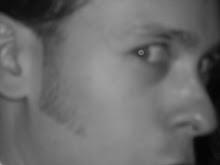Lately I’ve been mining the archives of presentations at the annual TED conference. Each 20-minute talk addresses a subject from the field of technology, entertainment, or design, and many are presented by geniuses: Stephen Hawking and Frank Gehry’s talks are lined up in my downloads right now. Three of the talks that I watched recently share a common theme: choice. Their juxtaposition in my queue was coincidental, but maybe I selected them through a subconscious desire to excuse my occasionally lousy decision-making skills. (I tend to vacillate endlessly and research exhaustively when presented with an important decision, such as which new brand of toothpaste to try.)
Barry Schwartz – The paradox of choice
More options don’t always result in greater satisfaction. In this talk, Schwartz discusses the hidden costs that come with freedom of choice. In his words, they are:
- Regret and anticipated regret
- Opportunity costs
- Escalation of expectations
- Self-blame
Malcolm Gladwell – What we can learn from spaghetti sauce
Gladwell explains how experimental psychologist Howard Moskowitz handles the difficult task of figuring out what we want when we don’t really know what we want, and how companies use the results to provide us with choices that didn’t previously exist.
If I asked all of you, for example, in this room what you want in a coffee, you know what you’d say? Every one of you would say, “I want a dark, rich, hearty roast.” … What percentage of you actually like a dark, rich, hearty roast? According to Howard, somewhere between 25 and 27 percent. Most of you like milky, wheat coffee. But you will never ever say to someone who asks you what you want that I want a milky, wheat coffee.
David Pogue – When it comes to tech, simplicity sells
Pogue argues convincingly that extra features commonly hurt tech products. I agree wholeheartedly, as this idea has fueled my recent interest in interaction design. My favorite part comes at the end, when Pogue praises the latest version of his favorite speech recognition software. The new version added no new features; the company just greatly improved the speech recognition accuracy and made the software much more enjoyable to use.
* * * * * * *
PS – Our houseguests this week are Lucy’s comics friend Erika Moen (who does the fabulous webcomic DAR, please check it out) and her husband, Matt Nolan. To see Erika interview Lucy, check out The Erika Moen Show on Ustream.

No comments:
Post a Comment